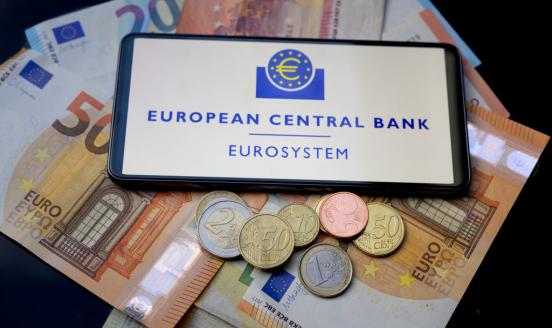Industrial policy for economic security
For the next five years, economic security will undoubtedly be one of the top priorities for the leadership of the European Commission. To ensure its economic security, the European Union will need to use the until recently discredited concept of industrial policy, in other words, interfering with market forces to promote sectors and firms it deems strategic. But it will have to use it wisely if such policies are to make a difference to the EU’s economic growth.
Ensuring economic security implies that two objectives will need to be achieved. The first is ‘de-risking’. As the world economy becomes increasingly fragmented, optimising one’s production based only on growth and profit maximisation is not rational. To ensure business continuity, firms must also optimise the lengths of their supply chains, while diversifying and increasing their resilience. In fact, one wonders why the EU had to go through such a vast energy shock to realise the importance of diversification, particularly when it concerns such an important factor of production as energy.
With this important lesson learned, the EU is now diversifying its sources of energy, while becoming acutely aware of the need to manage other dependencies, especially for rare earths and other critical raw materials that are crucial for its energy transition.
The second objective is achieving scale. This is perhaps easy to justify but much more difficult to implement. It has to do with the EU’s economic model of growth. How can the EU remain competitive in a world in which scale matters?
In China, for example, where state capitalism applies, the state finances companies, enabling them to grow. By picking the industries and companies it believes will drive economic growth, China interferes with free markets to achieve massive production at low prices. Whether such a model provides a sustainable global advantage in the long run remains to be seen. But in the meantime, China has captured the industries of the future, particularly those necessary for driving the green transition.
The United States, meanwhile, is the global leader in innovation, reaping the benefit of well-functioning synergies between world-class research at universities and firms, a public sector that drives innovation motivated by security and military concerns, and ample appetite for risk-taking and risky finance. In the context of the digital transition, the US has created giant firms that, through network effects, have secured world leadership. Next to that, and with China threatening to displace it from this position, the US is increasingly ready to apply industrial policy tactics that are similar to China’s, as seen in the US CHIPS and Science Act and the Inflation Reduction Act.
The EU is struggling to achieve this scale. It has an incomplete market for goods and services, a fragmented market for banking services and a rudimentary market for capital. The only remaining option is to join the others in identifying strategic industries that will be relevant in driving economic growth and helping them to grow. An ardent defender of open and free markets, EU leadership has struggled with this idea in the past few years.
Economists on both sides of the Atlantic have opposed the notion that the state is capable of picking ‘winning’ firms and that industrial policy benefits the consumer. But the presence of industrial policies across the globe has now pushed the debate beyond whether to apply them to, instead, how to apply them.
In a recent paper, the International Monetary Fund has set out three guidelines for when government support can enhance productivity and provide welfare improvements for the consumer. First, the government must have the administrative capacity to design and implement such policies. Second, policies applied must not discriminate against foreign firms because domestic firms then can either lose benefits from foreign know-how or suffer retaliation. Third, and perhaps most important, the targeted industries must create tangible social benefits. A clear example of that would be promoting sectors that generate low carbon emissions.
Industrial policies remain, therefore, risky. Justifying their use needs, at the very least, the presence of clear social benefits. Undoubtedly the urgency of the green transition provides opportunities in this regard. The EU will do well to seize them.



